Libyan women create opportunities at Jamila workshop in southern Libya
Seventeen Libyan women work, active as a beehive, in the production and sale of clothes at Jamila’s women’s workshop in southern Libya. With this work, the gentle hands at the workshop have been breaking down barriers and overcoming obstacles in order to make a living.
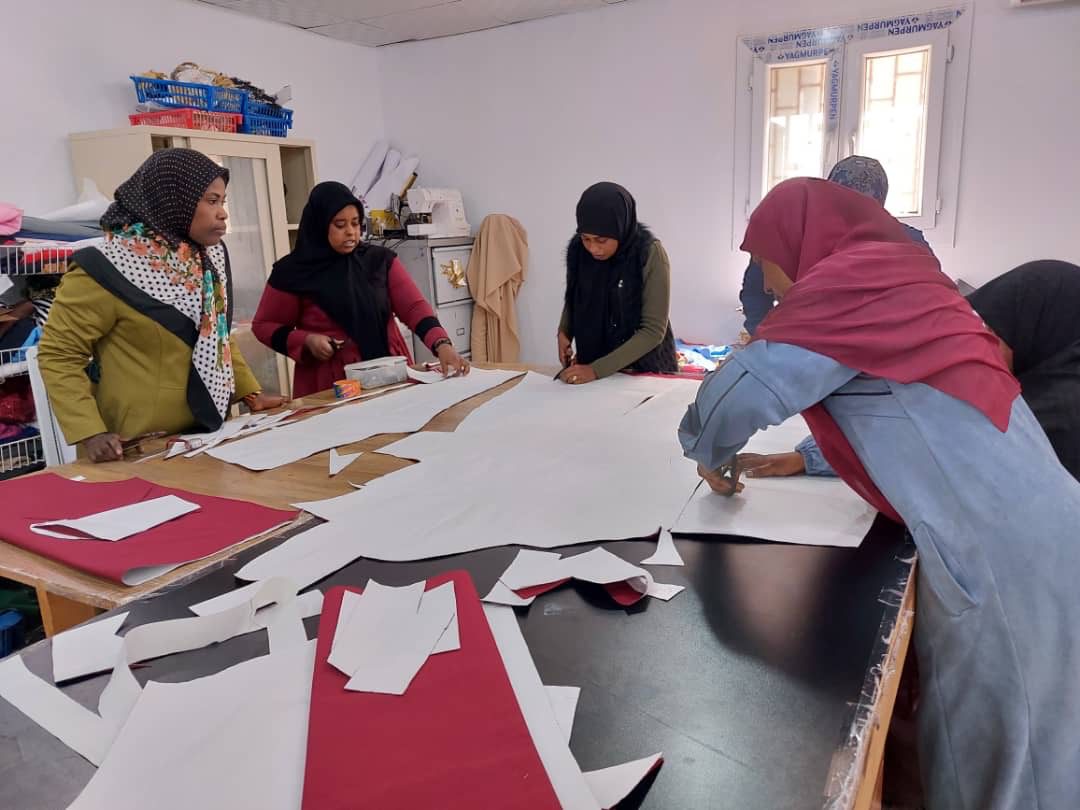
A unique experience
Jamila Mansour, the 45-year-old manager of the workshop, describes her career as challenging rather than easy. Despite this, she has always harboured this dream, this idea that she has now successfully turned into reality. To her, this workshop is an opportunity to venture into new horizons.
“With modest efforts, we started our project two years ago, and people greeted our idea with surprise, wondering if we could succeed. Concerns about job opportunities for women in the region surrounded us, and I wondered if we could really achieve this.”
“We are the ones who evaluate our capabilities and potential,” Jamila asserts, her voice steady but resolute. Her words ring with a conviction forged through years of overcoming obstacles. She continues, “Every woman is able to pursue any profession if she has the will,” Yet, there is also the memory of scepticism from society, a reminder of the doubters who questioned her aspirations. “I still remember very well how much doubt I faced. Particularly about my right as a woman to achieve financial independence.”
Jamila says: “But we overcame all challenges and turned them into opportunities, we received great assistance and support from our families, and we developed a relationship of affection and attachment with our work.”
The workshop received financial support from the EU through a 6-month business acceleration programme called Boost it mentored 19 emerging start-ups from 6 different Libyan cities. This programme was part of EU4PSL which focuses on helping small enterprises, especially the ones run by women, with the aim of supporting economic development in Libya.
The EU contributes to supporting skills that are of great importance in local markets in several countries, through a series of initiatives aimed at developing the competencies of young people and ensuring a bright future for them.
Jamila and her team were able to sign contracts with more than fifty educational institutions to produce school uniforms in the southern region, describing this as the great achievement she has always dreamed of.
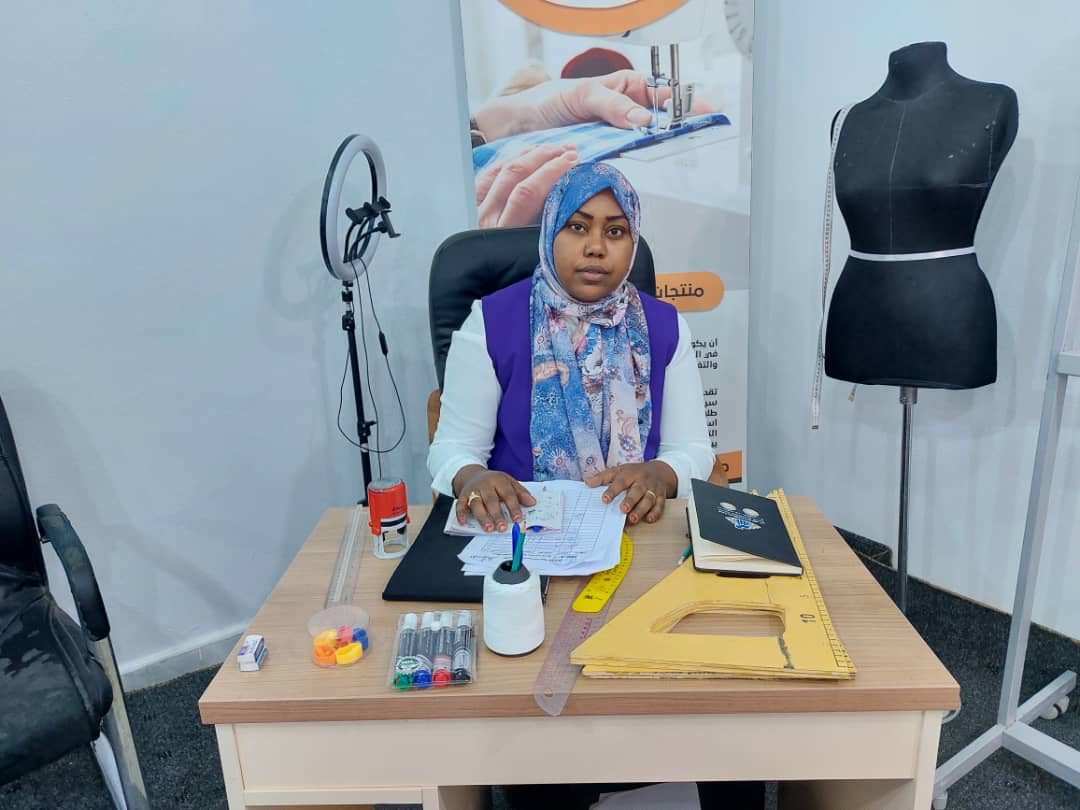
A golden opportunity
These women see the workshop as a valuable opportunity. Despite being at the beginning of their careers, they are making continuous efforts to develop it into a future source of income for their families and create new job opportunities.
Mansoor and her coworkers have received specialised training courses and gained experience in this field, which enabled them to achieve success.
The women of the workshop are keen to spread their idea to as many women as possible, and they have already started training girls from several cities in the southern region, with the aim of expanding the impact of their project and helping more women achieve economic independence.
In another scene, one of the workers appears happy, moving between the machines, reshaping the fabric into beautiful clothes.
She sees the workshop as a refuge from the stresses of life and expresses her delight: “I feel very happy with the time I spend here with my colleagues; we cut and reshape fabrics to produce beautiful pieces.”
The forty-year-old lady adds “I feel proud of every piece we make. I feel like I’ve made something out of nothing.” She continues: “This work has provided us with a supportive idea for women’s self-empowerment, as we seek to develop ourselves day by day, and gain new experiences that help us in life.”
Jamila shares the story of her passion and hobby for design since childhood, saying: “At the beginning of the project, I faced several difficulties, the first of which was capital, so I decided to sell all my gold. Despite my mother’s opposition at the time and my husband’s hesitation, I was able to convince them, knowing the importance of gold for Libyan women, and indeed I started working with five women and only two sewing machines.”
Jamila and her coworkers continue to face other difficulties in the southern region, as she says: “We found ourselves paying the price because there were no wholesale fabric stores in the region, which was the biggest challenge for us, but our cooperation with the EU and its support enabled us to contract a shop that ships fabrics to us on demand.”
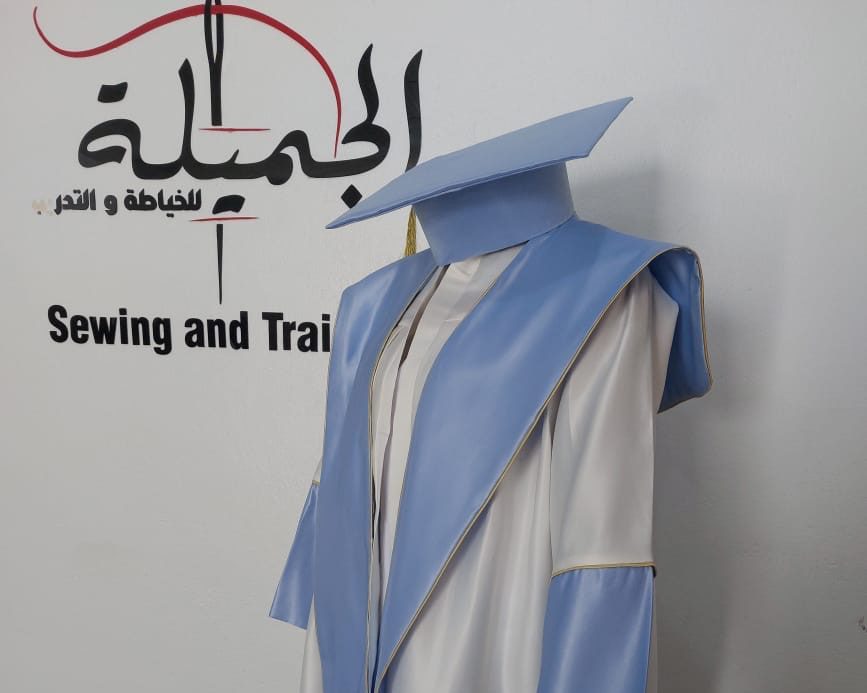
Boosting recycling efforts
Jamila has also worked on an environmental initiative that aims to boost recycling efforts in the country and provide additional income for women, as she benefited from waste fabrics, turning them into mixed-use canvas baskets, with the aim of reducing the use of plastic bags and hence minimising the negative environmental impact associated with them.
The campaign was launched as a result of the rapid increase in the use of plastic and nylon bags in Libya, where the annual consumption of these bags per capita is estimated to be between 1,000 and 1,500 bags. This figure is almost double the European per capita consumption, showing the country’s alarming high level of plastic consumption.
Regarding the targeting of bakeries and cake shops, she said: “Since bread is one of the basic necessities that are usually packaged in plastic bags, we decided to target this vital sector. The reason lies in the danger of using plastic bags with bread, because these bags are made of chemicals and petroleum substances that may react, resulting in substances harmful to health, especially when the bread is hot inside the bags.”
She stresses that she has not expected all her success so far.” I have always loved this field and adore every cloth I work on and recycle. I am very happy whenever I design and make something that people like and appreciate, it’s as if I own the entire world.”
The result was as much educational as it was successful; we’ve learned a lot through effort and determination. When women of the workshop discovered their ability to make beautiful embroideries that people admire and buy for their beauty, they realised the importance of their role in the private sector.
Libya’s private sector is a driving force for innovation, job creation, and economic growth. Therefore, it is necessary to create an enabling business environment that encourages entrepreneurship and ensures favourable conditions for innovation, investment, and trade in Libya.
Jamila expresses her ambition to expand the scope of the workshop’s business, saying: “We aspire to expand the distribution of our products not only in the south but also to the west and east, to serve all parts of Libya. “I hope to have branches in major cities such as Tripoli and Benghazi. Why is the process not reversed? So that we in the South can export our products to the North? Why does everything have to come from outside?”
Jamila hoped the state would help micro-entrepreneurs, especially with regard to the production of school uniforms, which the state imports from abroad while it could deal with local workshops like ours? In order to ensure cooperation and business relations with local producers in building and developing our economy.”
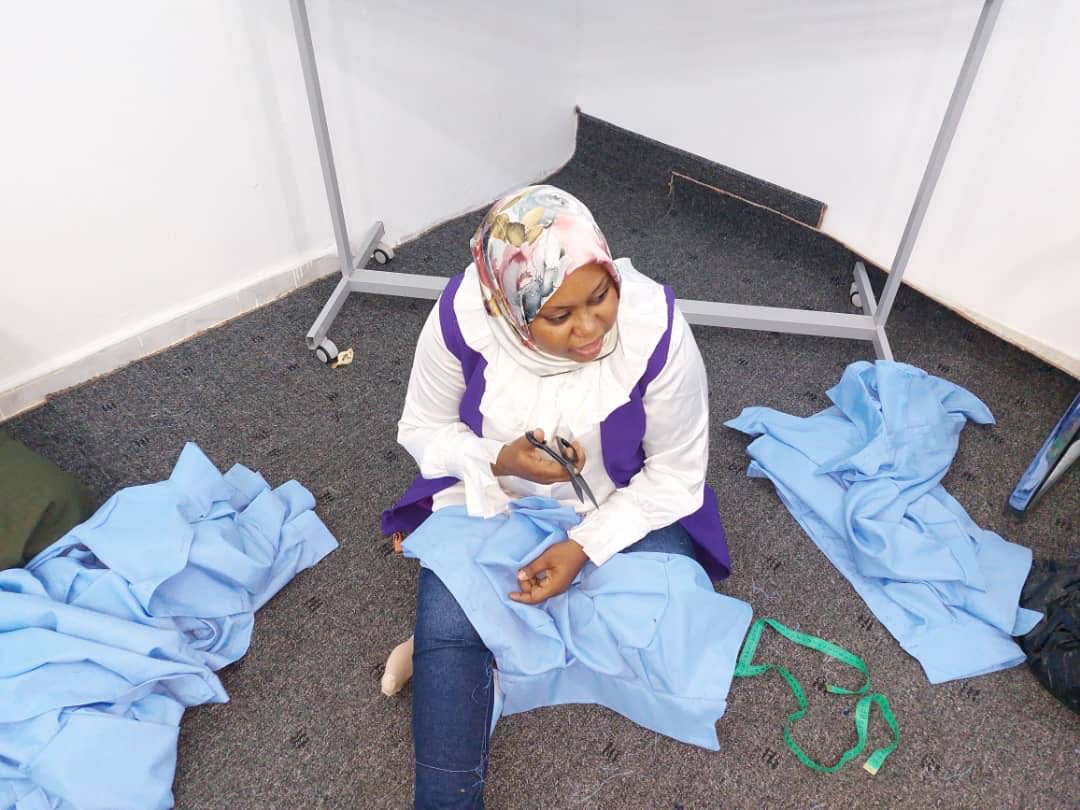
“Boost” project to support entrepreneurs
The European Union has supported entrepreneurs by equipping them with the skills, tools and opportunities to turn their ideas into successful businesses.
In this context, the “Boost” project has shown its effectiveness by facilitating access to economic institutions and providing support to small enterprises and startups in various fields, such as Jamila’s workshop.
Jamila concluded by expressing her happiness to be one of the beneficiaries of the projects funded by the European Union. She stressed that she has benefited a lot from this experience and still has hope to continue her efforts to achieve her dream of opening a large factory.
Jamila aspires to manage this factory and to employ women from the region to provide greater job opportunities and local products in support of the national economy in order to create a local market based on Libyan quality and creativity.



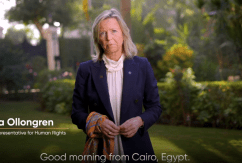

























 Syria
Syria 



